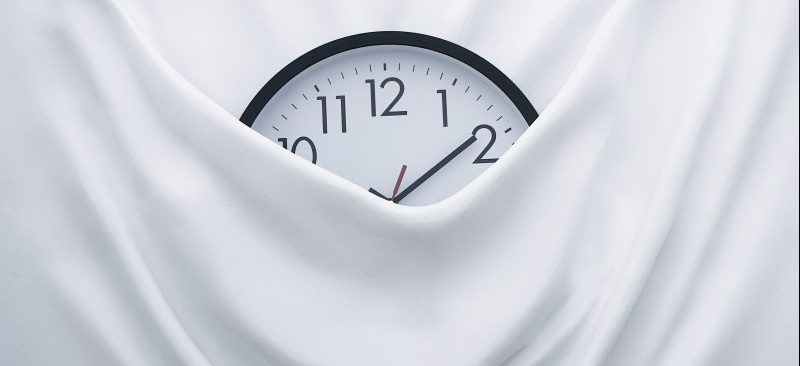This GovLoop series on “Managing Yourself” provides readers with the right skills, tools and mindset to be proactive about their development and as a way to thrive and succeed, both professionally and personally. In this series we covered “Knowing Thyself,” “Goal Setting,” “Time Management,” “Executive Presence,” “Effective Networking,” “Developing Charm,” “Diversifying Your Skillset,” “Becoming a Real Leader,” and ”Managing Up.”
This week we’re reviewing effective time management, offering a simple productivity formula as well as two tips for increasing productivity and getting more done with the time we have.
Why Managing Time Is Important
We wrote in the original article on effective time management that “time is the great equalizer.” You, Warren Buffet, Elon Musk, and the kid mowing the lawn down the street all have the exact same amount of time every day. What separates “high achievers” from everyone else is how they use their time.
This is important to understand because if we’re reading this article and genuinely interested in getting our lives on track (i.e., achieving our daily objectives), it all starts with how we spend our time.
There are essentially two ways we spend our time:
- As Costs — we spend the time with nothing to show for it.
- Examples would be binge-watching ridiculous YouTube clips or mindlessly surfing the internet on our phones.
- As Investments — we spend the time with something to show for it.
- Examples would be exercising, reading or completing tasks.
This isn’t to say you must spend all your time being productive. It’s imperative to work in some downtime each day with a decent mix of activities to keep us sane. But we need to consider the balance of our activities. Do they accrue interest and add value to our day… or do they simply just consume our time?
Theodore Roosevelt’s Schedule
Perhaps no one else in history exemplified efficient and effective use of time as well as Theodore Roosevelt (TR). Most of us are probably aware of his more well-known endeavors (president, Rough Rider, rancher, etc.), but here is a brief overview of what else he could accomplish while doing all those things:
- He wrote over 150,000 letters, authored several dozen books and hundreds of articles, led expeditions to Africa and the Amazon, exercised constantly, played with his kids daily and ate dinner with his family each night.
What Was TR’s Formula?
In a recent podcast on History Vs. – “TR vs. Time,” host Erin McCarthy chatted with Cal Newport, author of “Deep Work,” about how TR spent his time and was able to get so much done. Among the many things they discussed was a simple formula for productivity:
What You Produce = Time Spent Doing It X Focus
That’s it.
The interesting part is that what you produce (i.e., a report, a spreadsheet, etc.) is fixed. It is what it is. Therefore, if you want to spend less time on it, then mathematically, you would need to increase your focus. Conversely, if you decrease your focus, then you must spend more time!
Therein lies our problem! We want to produce, but are becoming increasingly distracted (by phones, email, you name it) which decreases our focus. That requires larger increases in time spent per activity!
Increasing focus was the secret to TR’s productivity. In fact, there are stories of him so focused on what he was doing that once, he didn’t notice his shoes were on fire while he was reading by the fire. Or, as biographer Edmund Morris wrote in “Theodore Rex,” when he shook your hand you felt as if you were at the absolute center of his universe for 2-3 seconds. He could focus his energy that much. In doing so, he could accomplish all that he did and still find the time to read around a book a day while president. Sounds great, doesn’t it?
What Can We Do About This?
If we want to increase what we produce, we must either:
- Increase our time spent or
- Increase our focus
Since we don’t seem to have the time, let’s focus on number 2 — increasing our focus.
Two Tips for Increasing Focus:
- Reduce distractions — this means turning off cell phones, texting, email, Snapchat, Instagram, messenger, chat, Facebook, news apps and YouTube.
- Cal Newport has an excellent Ted Talk on decreasing the distractions in our lives from social media
- Set better deadlines — have you heard of Parkinson’s Law? It says that work expands to fill the time available to complete it.
- So, try setting earlier deadlines and decrease the amount of time available to complete tasks (don’t be too unrealistic, though). You’ll still complete the tasks, but since you decreased the amount of time you need, you’ll have to — you guessed it — increase your focus!
Bringing It All Together
Much is expected of all of us nowadays. The “do more with less” mantra is ubiquitous, and it doesn’t seem like we have time for much of anything. Yet, there are reasons for this, even though we don’t want to admit them. Simply put, the distractions in our lives are rampant.
To get more done, we either need to increase our time spent on activities or increase our focus. So, take a few tips from Cal Newport and reduce the unnecessary and meaningless distractions, use time as an investment, and get your life back!
Or, take a tip from a favorite TR quote: “Get action. Do things; be sane; don’t fritter away your time; create, act, take a place wherever you are and be somebody; get action.”
For Further Reading
- “Deep Work” by Cal Newport
- “The Rise of Theodore Roosevelt” by Edmund Morris
- “Theodore Rex” by Edmund Morris





Excellent reminder as we start a new month, when clearly, all of us as a nation, have some pretty important items on our collective to-do-list.